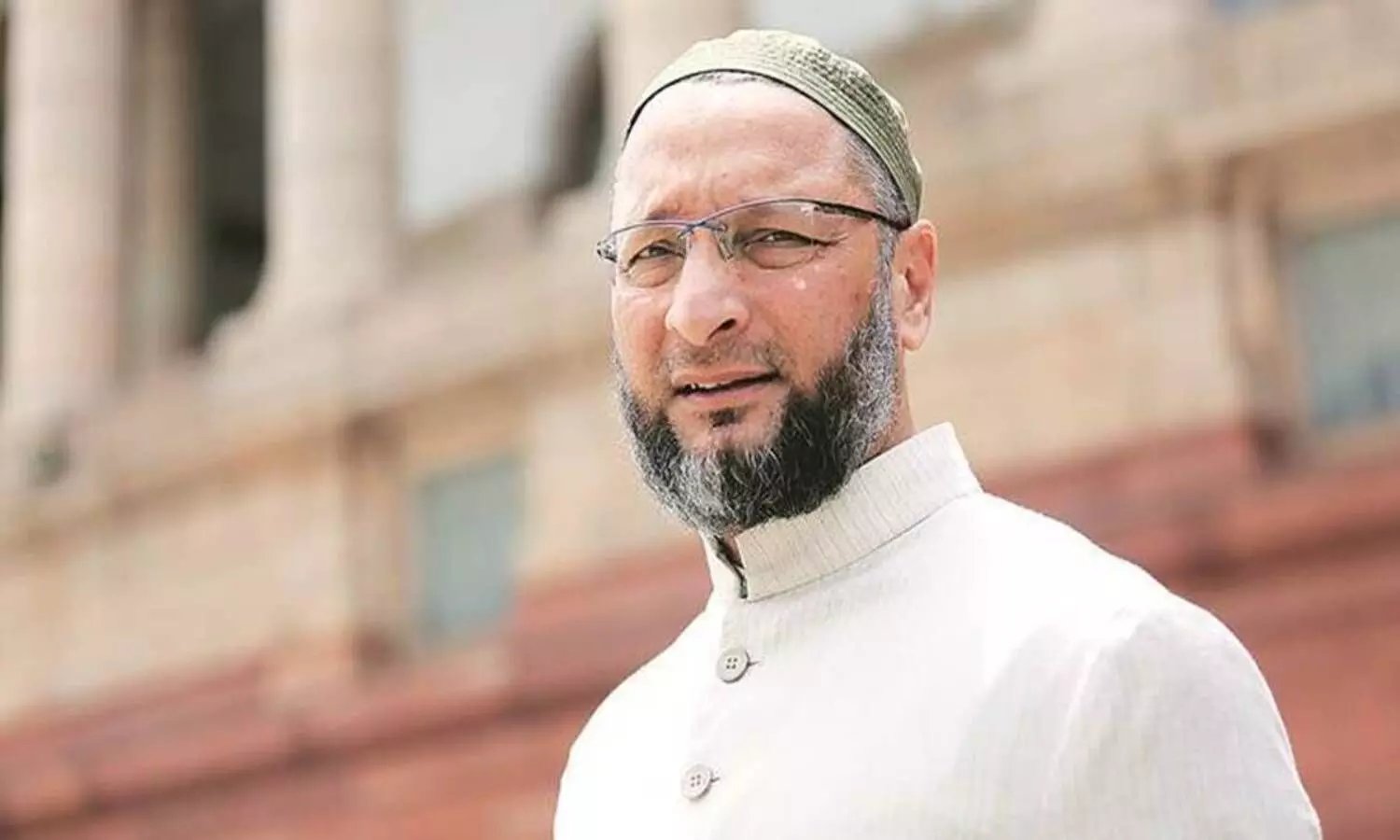Hyderabad: All India Majlis-e-Ittehadul Muslimeen (AIMIM) chief and Hyderabad MP Asaduddin Owaisi on Saturday said the Election Commission of India (ECI) must be mindful of the digital divide in India and review its guideline on virtual rallies ahead of the Uttar Pradesh elections 2022.
Mr. Owaisi tweeted, "We have taken up the challenge for #Elections2022 in Uttar Pradesh & inshallah we will fight with all of our strength. Hope that @ECISVEEP will review its guidelines post-15th. ECI must be mindful of the digital divide in India, especially in Uttar Pradesh."
This comes after the Commission banned election rallies and roadshows in Uttar Pradesh till 15 January.
He added that according to NITI Aayog, UP had only 39 internet subscribers per 100 people, one of the lowest in India. "According to NSS, only 4% of rural households in UP had a computer. Only 11% had internet facility. 19% of UP's richest had internet facility. Only 6% of poorest did (sic)," he further said.
Mr. Owaisi said that 50% of women in urban UP and 76% of rural women have never used the internet. He said only 54% of men in urban UP have used the internet at least once and only 46% of women in UP have a mobile phone for their own use.
Sharing a report called "Situating development of Muslims in Uttar Pradesh - Policy implications", the AIMIM chief tweeted, "This report is empirical proof that Muslims of UP were not appeased but exploited. UP's Muslims deserve better than this. Compared to forward caste Hindus, the average age of death was 6 years lower for Muslims (sic)."
He said that the share of OBC Muslims in UP government jobs was lower than their share in the OBC population while on the other hand, dominant case non-Muslim OBCs were over-represented in government services.
